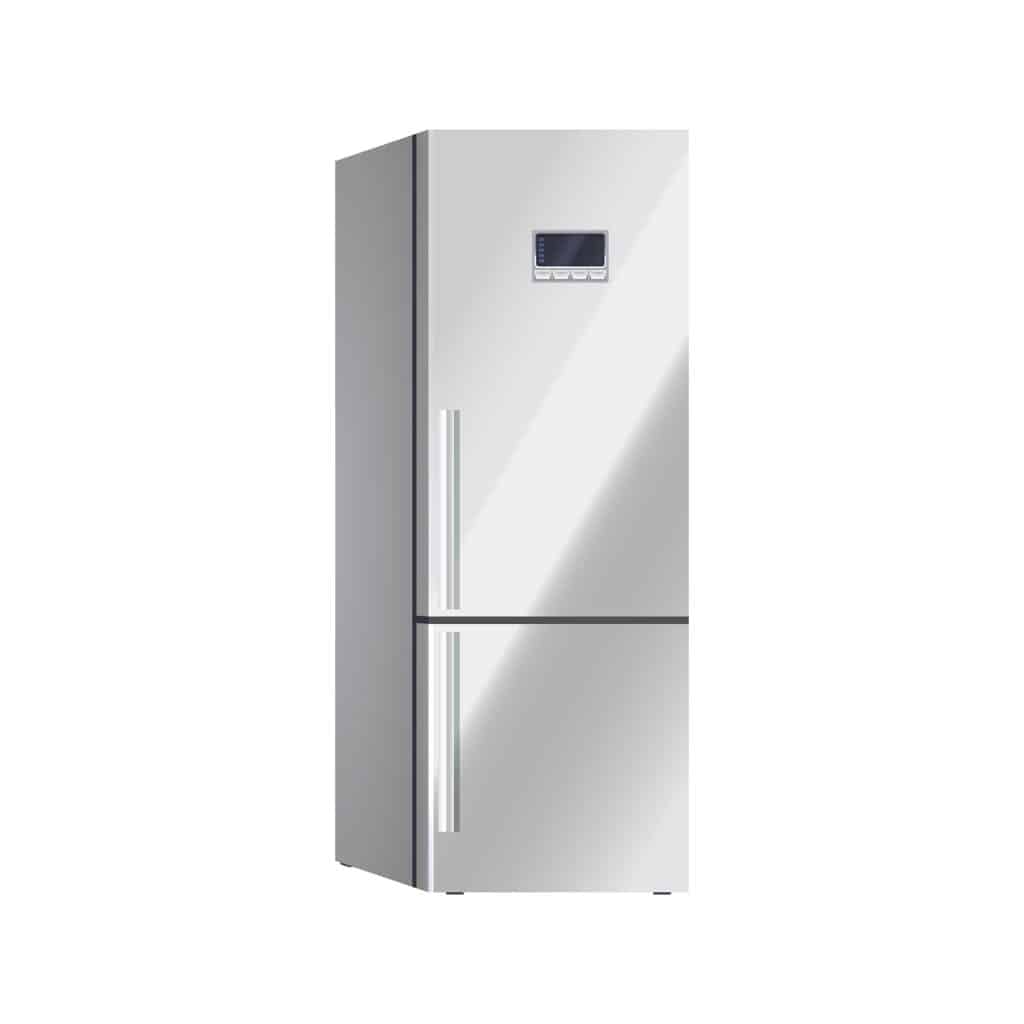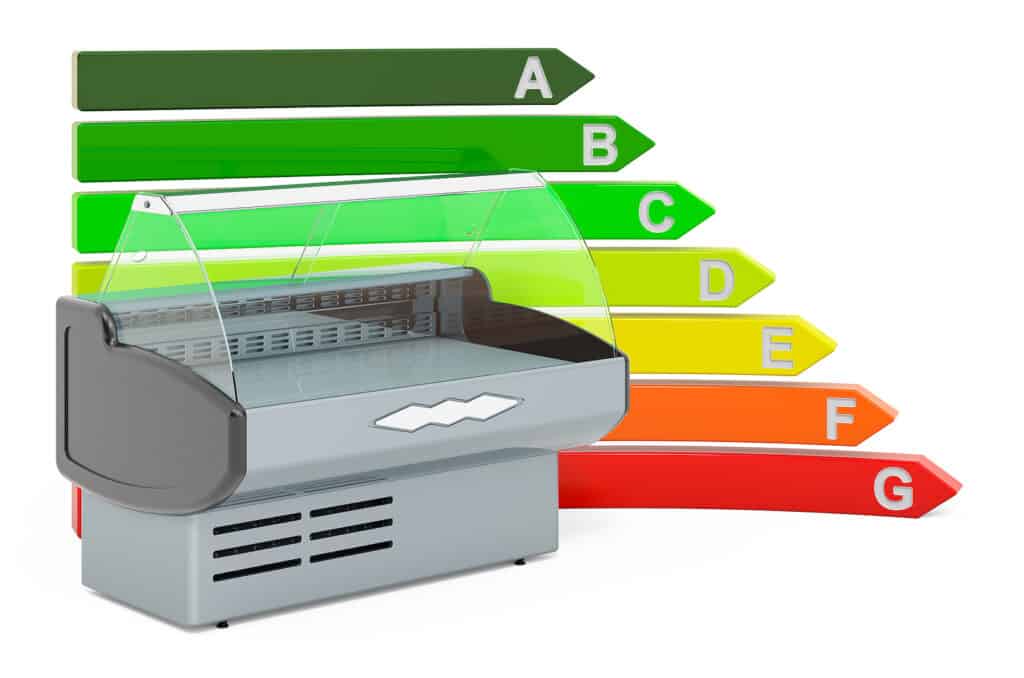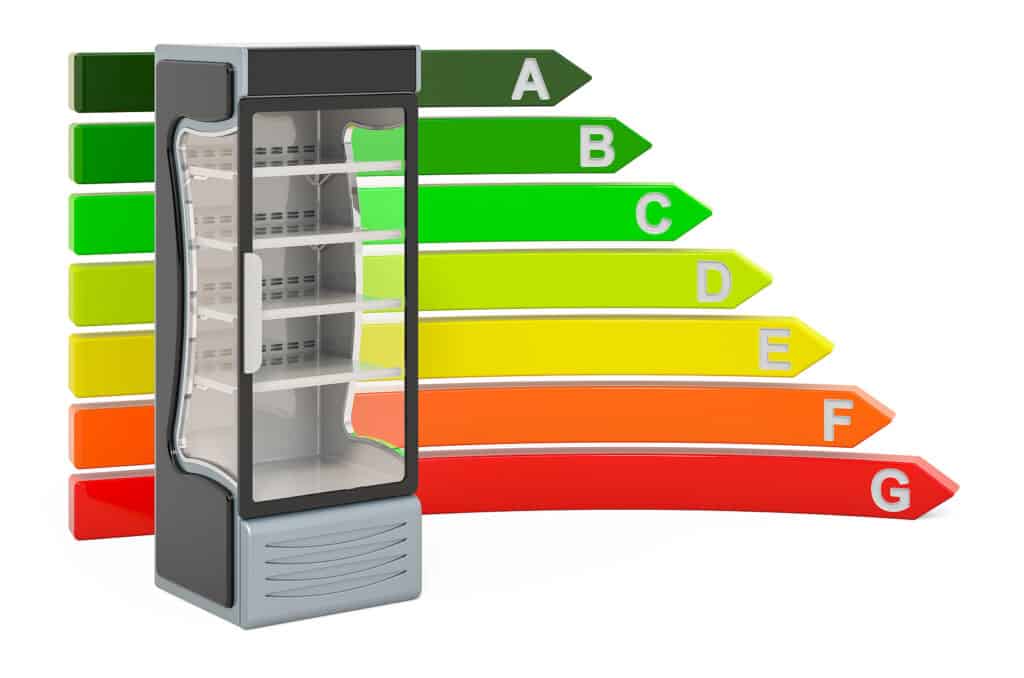As a homeowner who prioritizes sustainability and energy efficiency, opting for energy-efficient commercial refrigeration is not just an option but a necessity in today's world. With a growing focus on cutting costs and promoting eco-friendly practices, adopting such refrigeration systems brings immense benefits that impact both the environment and my household's budget.
By choosing energy-efficient commercial refrigeration, I can significantly reduce my carbon footprint, contributing to the collective efforts to combat climate change. These refrigeration units are designed to consume less electricity, resulting in lower energy consumption and reduced greenhouse gas emissions. As someone passionate about preserving the environment for future generations, this aspect is particularly appealing to me.
Understanding Commercial Refrigeration
Commercial refrigeration plays a pivotal role in the food service industry, ensuring the preservation of perishable items in various establishments like restaurants, cafeterias, grocery stores, and more. The scope of commercial refrigeration extends to a wide range of cooling systems, encompassing commercial refrigerator and freezers.
These refrigeration units are indispensable for maintaining the freshness of food and keeping beverages at optimal serving temperatures. Moreover, they play a crucial role in safeguarding public health by preventing foodborne illnesses that can arise from improper storage of perishable goods.
The success and safety of food service businesses heavily rely on the functionality and efficiency of their refrigeration systems. However, it's important to note that these units are also notable energy consumers. If not managed properly or made energy-efficient, they can result in exorbitant utility bills and contribute to unnecessary environmental impact.

How to Implement Energy-Efficient Commercial Refrigeration
When it comes to implementing energy-efficient practices in commercial refrigeration, attention to detail and strategic decision-making can yield significant benefits for businesses. Let's delve into more detail on how to achieve this:
Choosing Energy-Efficient Equipment
The process begins with selecting the right refrigeration equipment. While energy-efficient units may have higher upfront costs, it's essential to consider the total cost of ownership, including long-term energy savings and extended lifespan. Opt for models that bear the Energy Star label, as these have undergone rigorous testing and meet stringent efficiency standards. Energy Star-rated units are typically 15-20% more energy efficient fridges than standard models, providing substantial savings over time2. Additionally, consider the specific needs of your establishment to avoid over- or under-sizing your equipment, as improper sizing can impact efficiency.
Regular Maintenance and Optimization
Maintaining refrigeration equipment in top-notch condition is crucial for optimal energy efficiency. Regular maintenance tasks include cleaning coils, checking and replacing door seals if necessary, calibrating temperature settings, and scheduling professional check-ups at regular intervals. Clean coils ensure that the system operates with minimal strain, while properly sealed doors prevent cold air leakage. Accurate temperature calibration avoids unnecessary energy wastage. Moreover, it's essential to educate staff on best practices, such as keeping refrigerator doors closed as much as possible, avoiding overstocking to allow for proper air circulation, and ensuring that the unit is placed away from heat sources, which can lead to increased energy consumption.
Implementing Energy Management Systems
For larger food service operations, investing in energy management systems can be a game-changer. These systems allow comprehensive monitoring, control, and optimization of energy usage in refrigeration setups. By providing real-time data on energy consumption, businesses can identify inefficiencies and pinpoint areas for improvement. Energy management systems can suggest corrective actions, such as adjusting temperature settings during off-peak hours or optimizing defrost cycles to reduce energy wastage. These insights empower businesses to make informed decisions, maximize efficiency, and ultimately lead to significant energy and cost savings.
Employee Training and Awareness
Energy efficiency in commercial refrigeration is not solely dependent on equipment and technology; it also involves cultivating a culture of awareness and responsible usage among staff. By educating employees about the importance of energy conservation and providing them with simple guidelines for efficient refrigeration practices, businesses can foster a collective effort toward sustainability. Regular training sessions can highlight the impact of energy-saving measures and encourage staff members to actively participate in energy efficiency initiatives.

Benefits of Energy-Efficient Commercial Refrigeration
Substantial Financial Benefits
Energy-efficient commercial refrigeration systems yield substantial cost savings for businesses. These modern refrigeration units are equipped with advanced technologies and design features that optimize their performance, resulting in reduced energy consumption compared to traditional systems. Over time, the cumulative reduction in energy usage translates into significant financial savings on utility bills. These savings can then be reinvested into other crucial areas of the business, such as upgrading equipment, expanding product offerings, or improving customer experiences.
Prolonged Equipment Lifespan
One of the key benefits of energy-efficient commercial refrigeration systems is their extended lifespan. These units are thoughtfully designed with a focus on durability and longevity. As a result, they experience less wear and tear due to their lower energy consumption. The reduced strain on components contributes to the equipment's overall longevity, resulting in fewer breakdowns and maintenance issues. By investing in the most energy efficient walk-in coolers, businesses can mitigate the need for frequent replacements and repairs, saving not only money but also valuable time and resources.
Environmentally Responsible Practices
Opting for energy-efficient commercial refrigeration goes beyond just financial gains; it also makes a positive impact on the environment. By using less energy, these refrigeration systems contribute significantly to reducing greenhouse gas emissions. The reduction in the carbon footprint aligns with the growing global emphasis on sustainable and eco-friendly business practices. Taking steps to reduce environmental impact not only benefits the planet but also enhances a business's reputation as a responsible and socially conscious entity.
Enhanced Business Reputation
Investing in energy-efficient commercial refrigeration systems allows businesses to bolster their reputation as environmentally responsible establishments. In today's market, where consumers are increasingly environmentally aware, a commitment to sustainability can make a significant difference in attracting customers. Eco-conscious consumers are more likely to support businesses that prioritize environmental conservation. By positioning themselves as sustainable and energy-conscious, businesses can gain a competitive edge, expand their customer base, and foster long-term loyalty from like-minded consumers.
Compliance with Regulations and Incentives
With growing concerns about energy consumption and environmental impact, various governments and organizations have introduced regulations and incentives to encourage businesses to adopt energy-efficient practices. By implementing energy-efficient commercial refrigeration systems, businesses can ensure compliance with these regulations, avoiding potential penalties while also potentially qualifying for energy-saving incentives and rebates. This can further enhance the financial benefits and encourage more widespread adoption of energy-efficient solutions
Maximizing Energy Efficiency in Commercial Refrigeration
Embrace ENERGY STAR Certified Equipment
When seeking an energy-efficient commercial refrigeration system, look no further than ENERGY STAR certified equipment. These units have undergone rigorous testing and have proven to meet high standards of energy efficiency. By opting for ENERGY STAR certified products, businesses can be confident that their refrigeration systems are designed to consume less energy while delivering reliable cooling performance.
Prioritize Regular Maintenance
Proper and routine maintenance is paramount to ensuring that your commercial refrigeration system maintains optimal energy efficiency. Regular maintenance tasks include thorough cleaning of coils to remove dust and debris, which can obstruct heat transfer and reduce efficiency. Additionally, inspecting and sealing any leaks in the refrigeration system prevents energy wastage and ensures proper cooling. Regularly calibrating and fine-tuning temperature settings also contributes to improved energy performance. Scheduling professional check-ups at regular intervals will help identify potential issues early on and ensure that your refrigeration system operates at peak efficiency.
Consider Retrofitting for Existing Systems
If replacing your current commercial refrigeration system is not feasible, retrofitting offers a viable solution. Retrofitting involves upgrading specific components of the existing system to enhance its energy efficiency. For example, you can replace outdated compressors with newer, more efficient models or install advanced electronic controls that optimize energy consumption. By strategically retrofitting your system, you can improve its efficiency without the need for a complete replacement, thereby reducing costs and minimizing disruption to your business operations.
Empower Employees through Training
Ensure that your staff members are well-informed about the significance of energy efficiency and equipped with the knowledge to operate the refrigeration equipment correctly. Simple yet impactful practices, such as ensuring door upright refrigerator energy star rated atosa usa mbf doors are closed promptly and securely when not in use, can lead to considerable energy savings. Regular training sessions can reinforce the importance of energy conservation and foster a culture of responsibility among employees. When staff members are actively engaged in energy-saving practices, it results in collective efforts toward a more sustainable and efficient operation.
FAQs on Energy-Efficient Commercial Refrigeration
Q1: What is energy-efficient commercial refrigeration?
Energy-efficient commercial refrigeration refers to refrigeration systems that have been designed or optimized to consume less energy compared to traditional units. This involves equipment choices, maintenance routines, and the implementation of energy management systems.
Q2: How does energy-efficient commercial refrigeration save money?
Energy-efficient commercial refrigeration systems use less energy to operate, reducing your business's energy costs. Additionally, they typically last longer and require fewer repairs, saving on maintenance and replacement costs in the long run.
Q3: How does energy-efficient commercial refrigeration minimize environmental impact?
By using less energy, these refrigeration systems lower the demand for electricity generation, reducing the emission of greenhouse gases and other pollutants. This contributes to global efforts to mitigate climate change.
Q4: What should I consider when buying energy-efficient refrigeration equipment?
When purchasing energy-efficient refrigeration equipment, consider the total cost of ownership, not just the initial cost. Look for models with Energy Star labels, which are often 15-20% more efficient than standard models. Also, consider the size, type, and features that are most suitable for your business.
Q5: How can I optimize my existing refrigeration equipment for energy efficiency?
You can improve energy efficiency by performing regular maintenance such as cleaning coils, checking door seals, and calibrating temperature settings. Additionally, it's important to optimize usage – for example, by keeping doors closed as much as possible, not overstocking, and avoiding placing the unit near heat sources.
Q6: What is an energy management system and how can it help with energy efficiency?
An energy management system is a tool that monitors, controls, and optimizes energy usage in a facility. For refrigeration systems, it can provide real-time energy consumption data, identify inefficiencies, and suggest corrective actions, helping to significantly improve energy efficiency.
Q7: How does energy-efficient commercial refrigeration contribute to business success?
Investing in energy efficiency reduces operational costs, improves equipment performance, and enhances sustainability, all of which contribute to a business's bottom line. Additionally, it can improve a business's reputation, attracting eco-conscious customers and aligning with corporate social responsibility goals.
Conclusion
In conclusion, as a homeowner who places a strong emphasis on sustainability and energy efficiency, the importance of adopting energy-efficient commercial refrigeration systems cannot be overstated. This journey of understanding the significance of these eco-friendly practices in the food service sector has been eye-opening and inspiring. Knowing that my conscious decision to choose energy-efficient refrigeration can have a positive impact on the environment while also saving on my household's electricity costs fills me with a sense of pride and responsibility.
Understanding the various aspects of commercial refrigeration, including its critical role in preserving perishable items and ensuring public health, has given me a deeper appreciation for the complexity and importance of these systems. The knowledge gained about implementing energy-efficient practices, from selecting the right equipment to regular maintenance and employee training, empowers me to make informed choices as a responsible homeowner.
Sources:
https://www.energystar.gov/products/commercial_refrigerators_freezers

